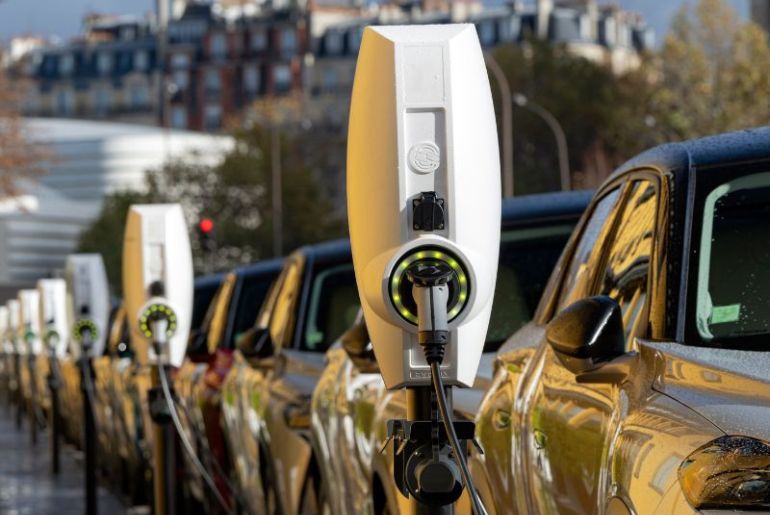In a major push towards sustainable mobility and pollution reduction, the Tamil Nadu Green Energy Corporation Limited (TNGECL) has announced plans to establish 500 electric vehicle (EV) charging stations across the state. The move is part of the state’s broader mission to accelerate EV adoption and cut down on transport-related carbon emissions.
To strengthen its technical capabilities, TNGECL has signed a memorandum of understanding (MoU) with the Institute for Transportation and Development Policy (ITDP). This partnership is expected to provide crucial support in designing, implementing, and scaling EV infrastructure.
Learning from Delhi’s EV Experience
As part of the collaboration, a delegation from TNGECL and ITDP visited New Delhi last week to study the capital’s EV ecosystem. The visit focused on understanding Delhi’s progressive EV policies, infrastructure models, and battery swapping systems.
“Due to increasing pollution from rapid urbanisation, Delhi had no choice but to switch to electric mobility. Their transition has been substantial,” said a senior TNGECL official. He pointed out that Delhi already operates 2,500 electric buses and aims to scale this number to 15,500 by 2030. The city has equipped nearly half of its bus depots with charging facilities and is actively working on the rest. Battery swapping stations for two- and three-wheelers have also been introduced, allowing users to exchange batteries instead of waiting for charging. In Delhi, vehicle owners typically do not own the battery—they just swap them as needed.
First Phase: 39 New Charging Stations, Highway Focus
TNGECL Managing Director Dr Aneesh Sekhar confirmed that the corporation will install 19 EV charging stations in Chennai, 10 of which will have battery swapping facilities. “We’ve identified the locations and are conducting a feasibility study with ITDP’s assistance,” he said.
The project’s first phase will also cover two of the state’s major transport corridors. “According to the Ministry of Power guidelines, charging stations should be placed every 25 km on highways.” “So we plan to set up 20 stations along the Chennai-Coimbatore and Chennai-Kanniyakumari highways,” Dr Sekhar added.
To enhance the user experience, TNGECL is working on developing full-service EV hubs. These facilities will include waiting halls, restaurants, drinking water, clean toilets, and large parking areas. Feasibility studies for all 20 highway locations are currently underway, following which installation will begin.
Boosting Access and Private Participation
Tamil Nadu already has around 1,300 EV charging stations, and TNGECL is developing a comprehensive digital map to help users locate them easily. The map will be integrated into public platforms to improve accessibility and planning for EV owners.
In a bid to encourage private sector involvement, TNGECL is also launching a dedicated online platform to connect landowners with potential EV charging station operators. “The site will act as a matchmaking hub. Landowners and interested tenants can register their details, and the system will help streamline location selection,” Dr Sekhar explained.
Industry Seeks Tariff Reforms
While the state’s EV ambitions are commendable, industry stakeholders have raised concerns about electricity tariffs. K P Karthikeyan, Founder and CEO of Zeon Electric Pvt Ltd, urged the state government to revise its pricing policy to encourage investment in EV infrastructure.
“In Delhi, electricity charges are Rs 4.50 per unit for Low Tension (LT) and Rs 4 per unit for High Tension (HT), with no fixed charges. Kerala, UP, and West Bengal follow similar models,” he said. “In contrast, Tamil Nadu imposes fixed charges of Rs 165 per kW for LT and Rs 304 for HT, along with a per-unit cost of Rs 9.75.” “This pricing severely affects the viability of EV charging businesses.”
Industry experts say rationalising electricity tariffs could be key to ensuring widespread adoption and long-term sustainability of the EV ecosystem in Tamil Nadu.
With technical support from ITDP and plans for user-centric EV hubs, Tamil Nadu’s EV future is set to accelerate, pending supportive tariff reforms and successful execution of the state’s ambitious roadmap.

